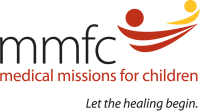“Nada por la boca después de la medianoche,” I told parent after parent. “No food or drink after midnight.” My main goal during screening day as a volunteer was to make sure each family understood these pre-operative instructions. I was faced with the challenge of creating a sense of trust between the patients and caregivers. Indeed, patients are more comfortable with health professionals when they speak in their native tongue. Communicating and building trust with a diverse patient population is an important responsibility that requires cultural competency. This is not just a simple consultation, but a combination of medical problems, social circumstances, and diverse socio-economic, racial, and geographic backgrounds. The members of the MMFC team were not only licensed health professionals, but were also empathetic, hopeful, and optimistic caregivers. The team’s focus on the complete well-being of patients rather than just their medical state was remarkable and is something I will never forget.
Max Quispe, the 3-month old boy with a bilateral cleft lip, was surrounded by his family members, all anxious and deeply concerned. Knowing that in Latin American tradition, conversations of health are not focused on the patient but on the family as a whole, the team made sure to address our words toward every person in the room, not just the parents. Today, I will never underestimate the health benefits of a simple conversation: by teaching Max’s family about the importance of regular health checkups, his parents will now try to bring him to see a doctor for yearly medical visits.
My experience volunteering in Peru has taught me the true meaning and importance of social sustainability within the realm of healthcare. While healing patients is our main goal, providing equitable access to preventive care and promoting health and wellness are equally important.
All in all, our mission to Cusco was an incredible success and an amazing adventure. Muchas gracias!
– Marianne Ruelle

